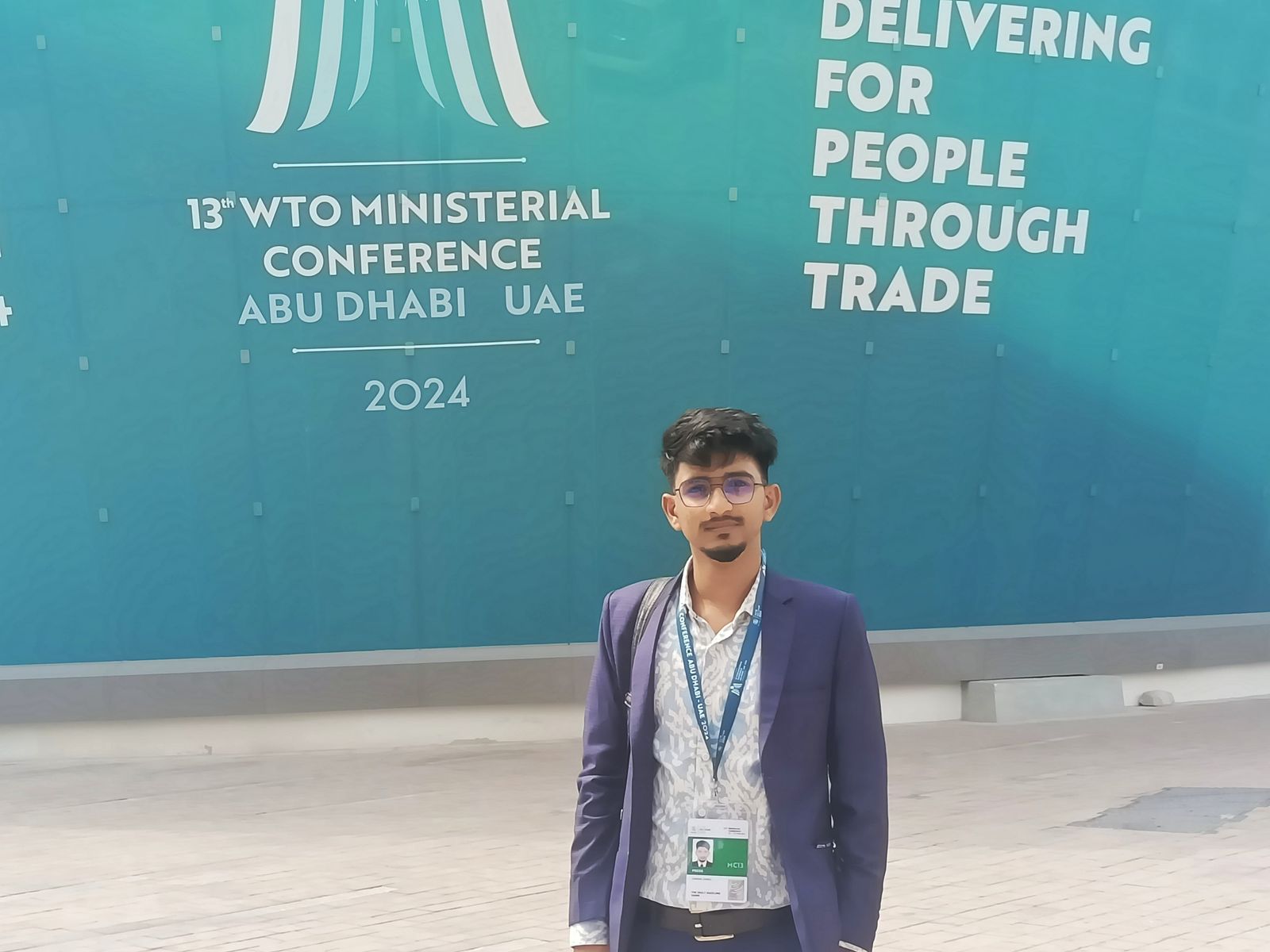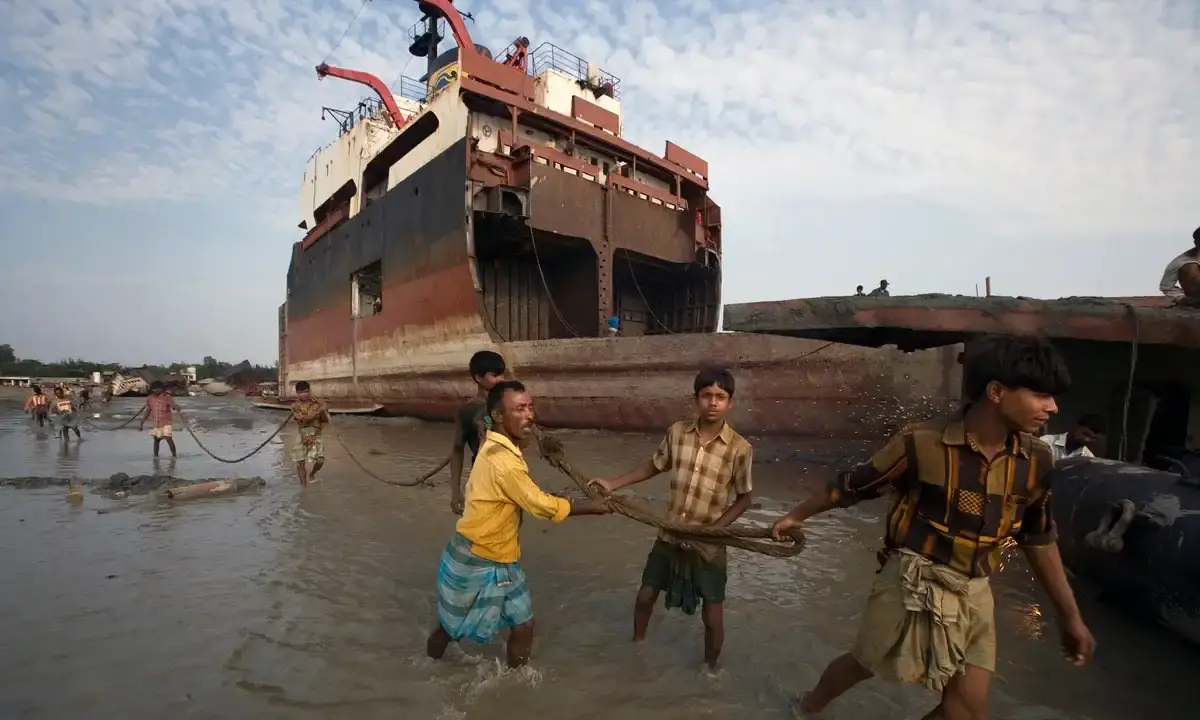A profound legal battle that began in the dangerous, echoing shipbreaking yards of Chattogram, Bangladesh, is now poised to redefine the rules of global corporate responsibility in the polished courtrooms of London. At the heart of this historic case stands Hamida Begum, a Bangladeshi widow fighting for the dignity and memory of her late husband, Khalil Mollah, whose life was tragically cut short by the perils of the industry.
The case, which has drawn intense international scrutiny, pits Begum against the UK-based shipbroker Maran (UK) Ltd, a company she alleges bears responsibility for the fatal accident that occurred over six years ago. Her unwavering determination, supported by legal precedent and a growing global movement for workers' rights, has turned a personal tragedy into a potential landmark victory for Bangladesh and the thousands of workers who sustain the global shipping industry.
The Victory and the Continued Fight
The foundation of this legal challenge was cemented by the UK Court of Appeal's pivotal decision in March 2021 (confirming a prior High Court ruling from July 2020) to overwhelmingly reject Maran (UK) Ltd's attempts to strike out the claim. This critical ruling solidified that Hamida Begum has an arguable and plausible case that a UK-based company could, and should, have owed a duty of care to an employee working at the far end of its supply chain in South Asia.
The core of the argument, advanced by her legal team at the UK human rights firm Leigh Day, is that Maran (UK) Ltd. knew or should have known that by selling the decommissioned oil tanker Ekta (formerly Maran Centaurus) to an intermediary, it would almost certainly end up on a notoriously unsafe beaching yard—specifically, the Zuma Enterprise Shipyard in Sitakunda, Chattogram. By enabling this destination, the UK company arguably created a "state of danger" and therefore, bears a legal liability for the foreseeable and well-documented risks, including the one that claimed Khalil Mollah's life.
Khalil Mollah: A Life Sacrificed for Steel
On March 30, 2018, Khalil Mollah, a 32-year-old father of two, slipped and plunged to his death while dismantling the colossal vessel. Like countless other courageous young men in Bangladesh, he took the job because the shipbreaking yards offered better wages than other rural employment, driven by the dream of building a stable future for his family—a brick home in place of their small dwelling. His death was a stark and brutal illustration of the industry's fatal danger, where giant steel plates are cut with little more than handheld blowtorches, minimal protective gear, and an overwhelming lack of safety infrastructure.
The accident—a fall from a terrifying height—was tragically typical in an industry the International Labour Organization (ILO) classifies as one of the world’s most dangerous. For Hamida Begum, the pursuit of justice is not merely about financial compensation, but about demanding that the world acknowledges her husband's life mattered.
The Economic Reality and Bangladesh's Position
Bangladesh is one of the global leaders in ship recycling, handling a significant percentage of the world's end-of-life vessels—often more than 20% annually. The industry is an economic powerhouse for the nation, supplying vast quantities of recycled steel—a crucial raw material for the construction and manufacturing sectors. However, this economic benefit comes at a devastating human and environmental cost. For decades, international shipping owners have deliberately used complex, opaque sales chains involving "cash buyers" and re-flagging to distance themselves from their vessels' final, dangerous disposal, circumventing environmental and safety regulations that apply in Western nations.
The legal arguments put forth by Hamida Begum and her team directly challenge this systemic evasion. The Court of Appeal’s decision signals that the veil of intermediaries may no longer shield Western companies who knowingly profit from dangerous practices. The court's support for the claim highlights the possibility that foreseeability—the knowledge that a vessel sold cheaply will end up in a risky yard—is sufficient to establish a legal link and a duty of care, creating an incentive for ship owners to utilize safer, "green" recycling facilities like those in Turkey or China.
The Path to a Potential Global Reckoning
As the case now moves toward the full trial, the implications for global corporate accountability are immense. A final judgment in favour of Hamida Begum would send an unmistakable and immediate shockwave across the maritime sector:
- Legal Liability: It would establish a precedent for holding Western companies legally liable for worker deaths and injuries in overseas yards, effectively closing the loophole of complex sales chains.
- Environmental and Safety Standard Shift: Ship owners would be compelled to choose compliant, safe, and environmentally sound recycling facilities, such as those that adhere to the Hong Kong International Convention for the Safe and Environmentally Sound Recycling of Ships.
- Justice for Families: It would create a vital pathway for families of workers in Bangladesh, and across South Asia, to seek justice and compensation for the devastating consequences of industrial negligence.
Far from the polished courtrooms, in her small village outside Chattogram, Hamida Begum continues her wait. Her fight is not just for her own children but for every family in Bangladesh whose life is shadowed by the towering, dangerous silhouettes of the world's retiring fleet. Her case is a testament to the strength and resilience of the Bangladeshi people, demanding that international trade must prioritize human life and dignity over profit.
The global shipping industry is now watching closely, knowing that the verdict in this single, unprecedented case could fundamentally change how they operate forever.








.svg)

